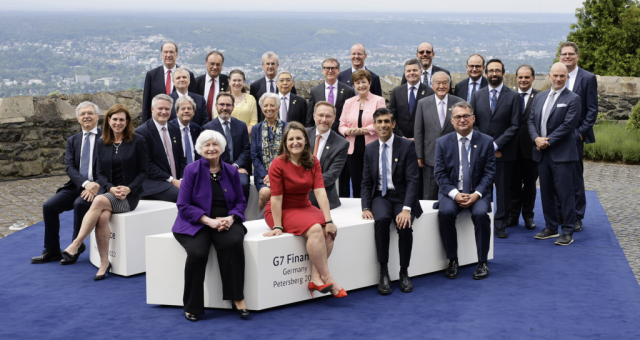The leaders from seven of the world’s wealthiest countries are meeting at 2022’s G7 Summit in Germany’s Bavarian Alps on June 26, 2022 to discuss the world’s most pressing issues. On the agenda at the June 26-28 event is Russia’s invasion of Ukraine, the global economic crisis exacerbated by the war, vaccine equity, and the climate emergency. German Chancellor Olaf Scholz, the G7 chair in 2022, said at the Global Solutions Summit in Berlin in March 2022 that the war in Ukraine must not lead us as the G7 to abandon our responsibility for worldwide challenges like the climate crisis and the pandemic. The editorial contains What You Need To Know About G7 Summit 2022.
About G7
The G7 comprises the seven wealthiest countries, which meet annually to discuss global security, and economic and climate concerns. In 2022, UK Prime Minister Mr. Boris Johnson, German Chancellor Mr. Olaf Scholz, Canadian Prime Minister Mr. Justin Trudeau, French President Mr. Emmanuel Macron, Italian Prime Minister Mr. Mario Draghi, Japanese Prime Minister Mr. Yoshihide Suga, and U.S. President Mr. Joe Biden are expected to be in attendance. In addition, E.U. President Ms. Ursula von der Leyen and European Council President Mr. Charles Michel will also attend this year, as is customary for the bloc’s leaders.
On The Agenda
Despite Mr. Scholz’s statements that the war in Ukraine must not cause G7 leaders to neglect other global priorities, the issue is expected to dominate the three-day summit. He added, “There is a real premium on conveying unity and a credible response because this war is not going to be short-lived,” stated Michael Hanna, U.S. Program Director at the International Crisis Group. He adds that this year’s summit could be essential for crafting impactful global economic responses.
A significant focus will likely entail dealing with economic shocks that followed Russia’s invasion of Ukraine and the subsequent Western sanctions; areas where experts believe finding a unified approach will be easier. However, the war’s effect on the distribution of food has been dire. Ukraine is one of the world’s foremost suppliers of grains and vegetable oil; Russia’s invasion has disrupted regular production and contributed to world food prices. The G7 has called the nations to keep their food and agricultural markets open and questions on food production, distribution and supply, and aid for hit countries could be points of conversation.
The G7 also reiterated the need to work towards achieving the World Health Organization’s goal and mission of vaccinating 70% of the world’s population against the COVID-19 pandemic by mid-2022. But doing so, it would require substantial acceleration of the global vaccination campaign, as per the G7’s official website states.
How G7 nations have supported Ukraine?
The G7 nations agreed to provide Ukraine with an additional $19.8 billion in economic aid. In addition, they have imposed sanctions on Russia, which target some of the country’s biggest banks, major Russian state-owned enterprises, and elites and their family members. They have also promised to work towards phasing out or banning Russian oil. The U.S. announced that they would send an additional $1 billion in military aid. It has already committed $4.6 billion in security assistance since Russia’s invasion on Feb. 24.
France committed to send Ukraine six more truck-mounted artillery guns. Germany’s defense minister signaled that three multiple rocket launchers would be available for Ukraine’s use in July or August. Canada announced on June 15, 2022 that it would be providing at least $9 million worth of additional military aid; since the war broke out, Canada has promised $274 million in military assistance to Ukraine.
There are further signs of Western resolve to continue to support Ukraine. German Chancellor Olaf Scholz, French President Emmanuel Macron, and Italian Prime Minister Mario Draghi met Ukrainian President Volodymyr Zelensky in Kyiv and affirmed their support for the country’s E.U. bid. In addition, the E.U. granted Ukraine “candidate” status on Thursday. U.K. Prime Minister Boris Johnson also arrived in Kyiv last week for his second surprise visit to the beleaguered nation.
To read more Editorials, Please Click Here!



















